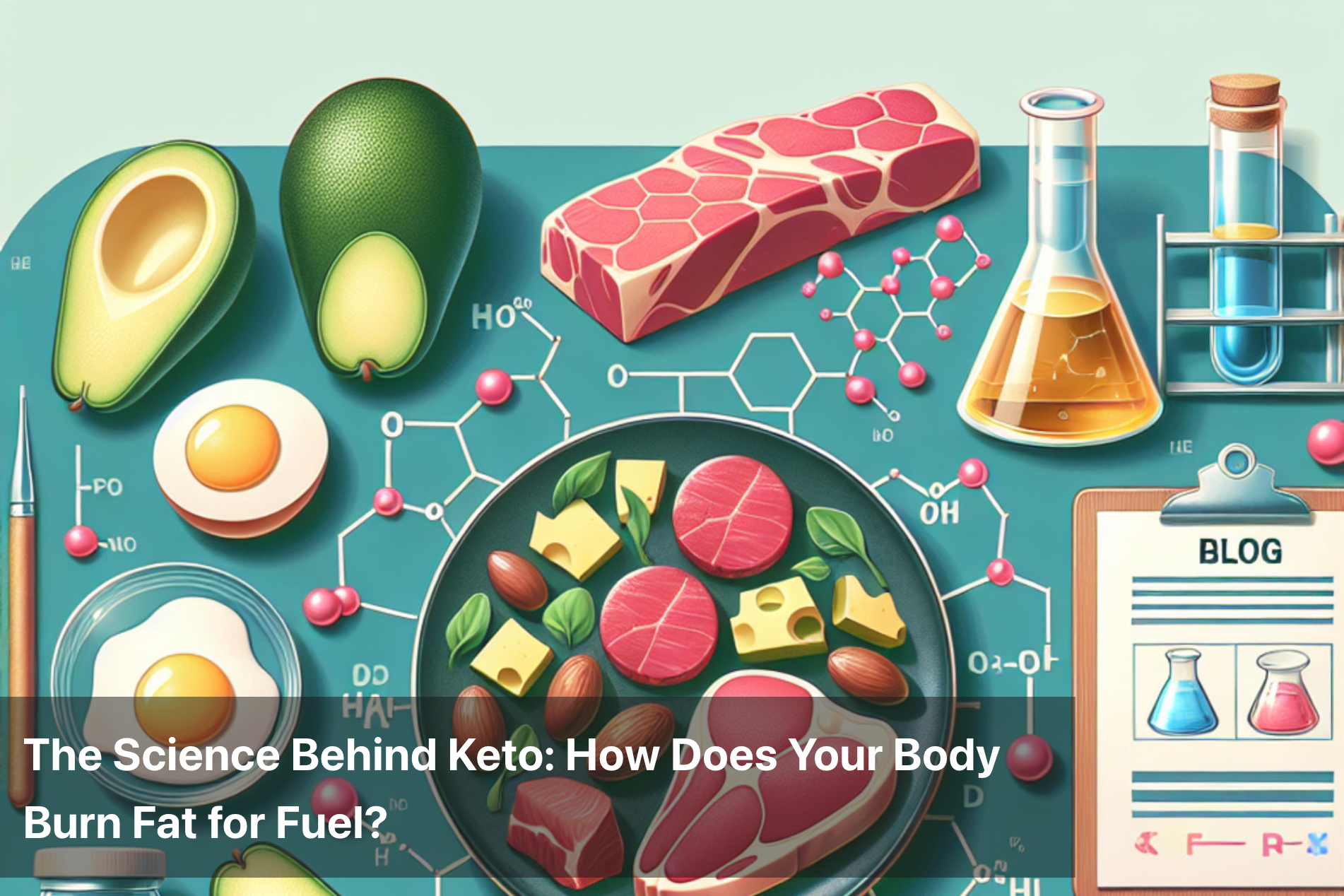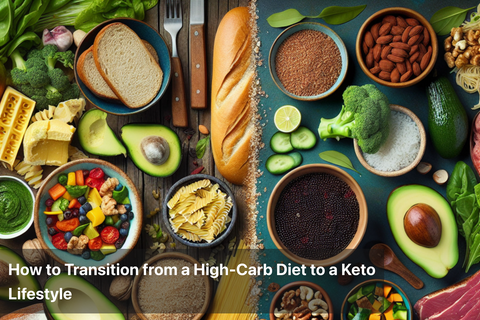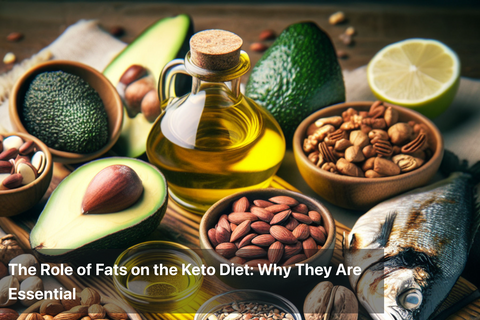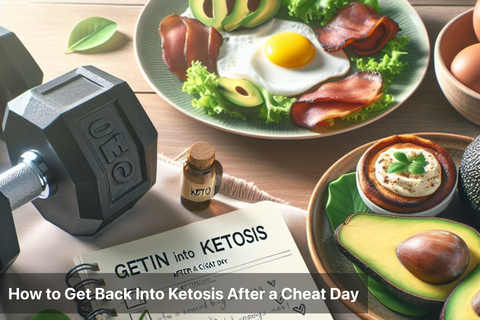
The Science Behind Keto: How Does Your Body Burn Fat for Fuel?
The ketogenic diet has gained widespread popularity for its ability to promote fat loss and improve metabolic health. At its core, the diet relies on a fundamental shift in how the body produces and utilizes energy. Instead of burning carbohydrates for fuel, the body enters a metabolic state called ketosis, where fat becomes the primary source of energy. This transition is driven by biochemical changes that influence metabolism, hormone regulation, and cellular function.
Understanding the science behind ketosis reveals why this approach to nutrition can be highly effective for weight loss, cognitive function, and energy stability. The process involves multiple physiological changes, including insulin reduction, enhanced fat oxidation, and the production of ketone bodies.

How the Body Burns Fat for Fuel
The body primarily relies on carbohydrates for energy, breaking them down into glucose, which is used for fuel or stored as glycogen.
When carbohydrate intake is reduced, glucose levels decline, leading to a drop in insulin secretion.
The body starts breaking down stored fat into fatty acids to compensate for the lack of glucose.
The liver converts fatty acids into ketones, which serve as an alternative energy source.
Once ketone levels rise, the body enters ketosis, relying on fat for fuel instead of carbohydrates.
Ketosis provides sustained energy, increases fat oxidation, improves mental clarity, and enhances appetite control.
After several weeks, the body becomes fat-adapted, optimizing fat-burning efficiency and improving metabolic health.
The Role of Ketones in Energy Production
Ketones are small molecules produced in the liver from fatty acids. There are three primary ketone bodies:
Beta-hydroxybutyrate (BHB) – The most abundant and energy-efficient ketone, used by the brain and muscles.
Acetoacetate (AcAc) – An initial ketone produced from fatty acids, later converted into BHB or acetone.
Acetone – A byproduct of acetoacetate, excreted through breath and urine.
Once ketones become the body’s main fuel source, energy levels stabilize, blood sugar fluctuations decrease, and fat stores are consistently utilized for energy.
Scientific Evidence Supporting Ketosis
Numerous studies highlight the effectiveness of ketogenic diets for fat loss and metabolic health.
Weight Loss and Fat Reduction: A study published in the Journal of Clinical Endocrinology & Metabolism found that individuals on a ketogenic diet lost more fat compared to those on a low-fat diet, even when consuming similar calorie amounts. The ability of ketosis to promote fat oxidation plays a significant role in this process.
Improved Insulin Sensitivity: Research in the Diabetes Journal demonstrated that a low-carbohydrate, high-fat diet improves insulin sensitivity, helping individuals with type 2 diabetes better manage blood sugar levels.
Cognitive Benefits: The brain efficiently utilizes ketones, reducing inflammation and improving cognitive performance. A study in Frontiers in Aging Neuroscience suggests that ketogenic diets may help protect against neurodegenerative diseases like Alzheimer’s.
Stages of Fat Burning in Ketosis
1. Glycogen Depletion
When carbohydrate intake is reduced, glycogen stores in the liver and muscles begin to deplete. This process can take 24-48 hours, depending on physical activity levels and previous carbohydrate consumption.
2. Lipolysis and Fat Mobilization
Once glycogen levels drop, the body shifts to breaking down fat for energy. Triglycerides stored in fat cells are released as free fatty acids and transported to the liver for ketone production.
3. Ketogenesis
The liver converts fatty acids into ketones through a process called ketogenesis. This marks the body’s full adaptation to fat as its primary fuel source.
4. Fat Adaptation
After several weeks of consistent ketosis, the body becomes fat-adapted. Energy levels stabilize, ketone production is optimized, and physical endurance improves. Many individuals report increased mental clarity and reduced hunger during this stage.
Case Study: Ketosis and Metabolic Syndrome
A clinical trial conducted by researchers at the University of California examined the effects of a ketogenic diet on individuals with metabolic syndrome. Participants followed a high-fat, low-carbohydrate diet for 12 weeks. Results showed:
A 20% reduction in body fat
Lower blood sugar levels by an average of 30 mg/dL
Improved cholesterol profiles, with higher HDL (good cholesterol) and reduced LDL (bad cholesterol)
Enhanced energy levels and better appetite control
This case study supports the effectiveness of ketosis for improving overall metabolic health.

Do’s and Don’ts for Achieving Ketosis
Do’s |
Don’ts |
|---|---|
Reduce Carbohydrate Intake – Keep daily carbs below 50 grams to ensure ketosis. |
Avoid Processed Foods – Many contain hidden sugars and unhealthy fats that hinder ketosis. |
Increase Healthy Fats – Consume avocados, olive oil, coconut oil, nuts, and seeds. |
Don’t Overconsume Protein – Excess protein can trigger gluconeogenesis, slowing ketosis. |
Consume Moderate Protein – Avoid excess protein to prevent it from converting into glucose. |
Limit Artificial Sweeteners – Some can spike insulin levels and disrupt ketosis. |
Stay Hydrated – Drink enough water to support metabolic functions and prevent dehydration. |
Don’t Neglect Fiber – Essential for digestion and gut health; include low-carb vegetables. |
Monitor Electrolytes – Maintain sodium, potassium, and magnesium levels to avoid keto flu. |
Avoid Excess Alcohol – Many alcoholic beverages contain carbohydrates that can take the body out of ketosis. |
Summary
The ketogenic diet fundamentally alters how the body generates energy by shifting from carbohydrate dependence to fat burning. Through a series of metabolic changes, including glycogen depletion, ketogenesis, and fat adaptation, the body efficiently utilizes fat for fuel. The benefits extend beyond weight loss to improved insulin sensitivity, cognitive function, and metabolic health.
By understanding the mechanisms behind fat burning in ketosis and following the right nutritional approach, individuals can optimize their health and energy levels while enjoying the benefits of a fat-fueled metabolism.
This Blog post is an initiative by Lo! Foods, to provide accurate and Nutritionist / Doctor approved information related to Health. Lo! Foods is India's leading brand for Everyday Functional Foods. Foods designed for specific Health conditions or Needs. Lo! Foods also runs India's largest range of Low Carb Healthy Cloud Kitchens, under the brand names of Lo!, ProteinChef, ATH (All Things Healthy) and DiabeSmart.









Leave a comment
Your email address will not be published.